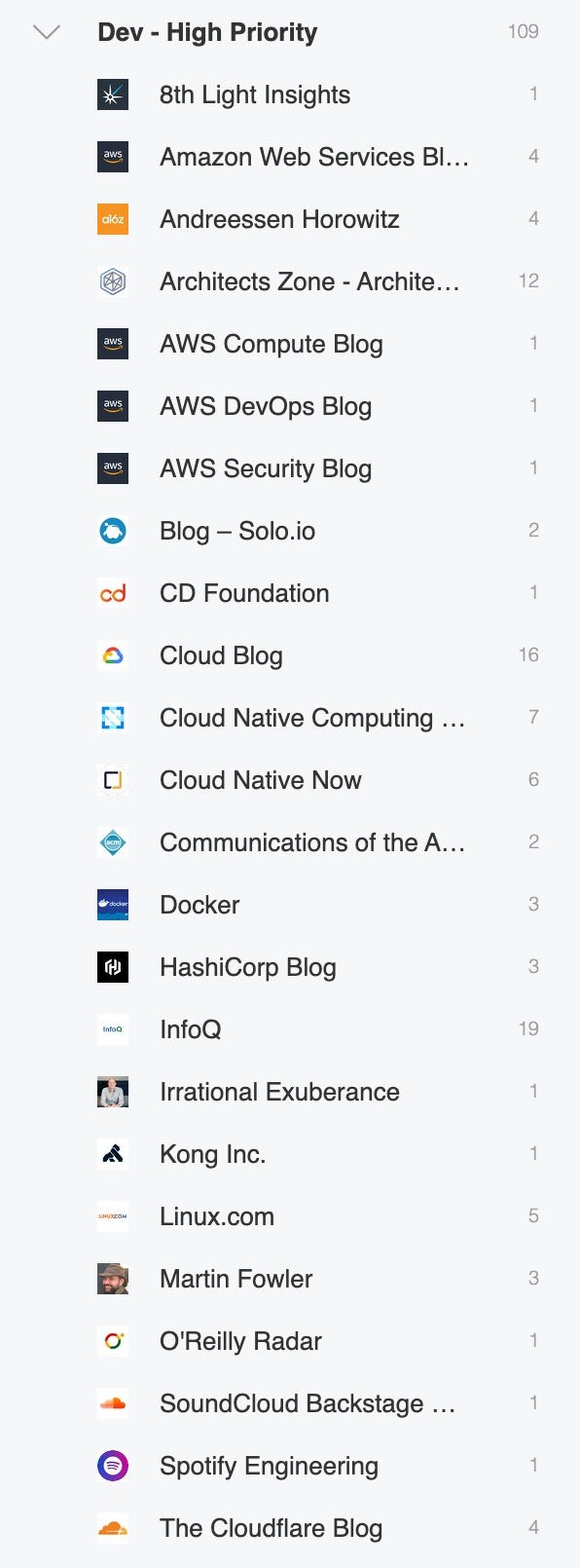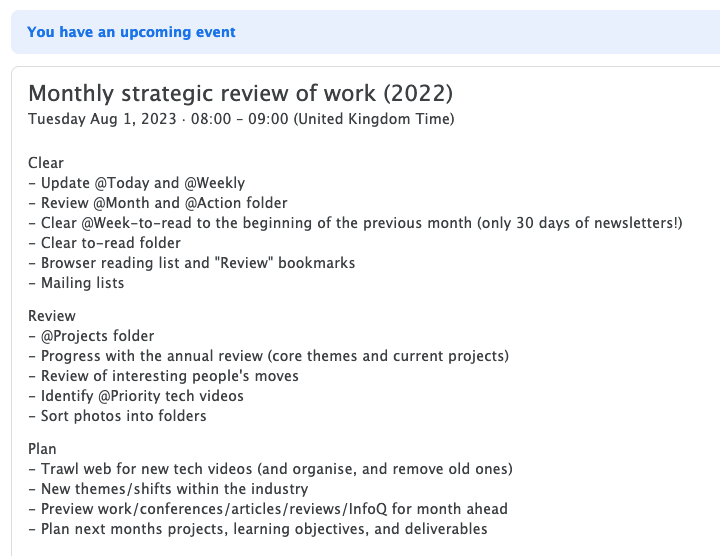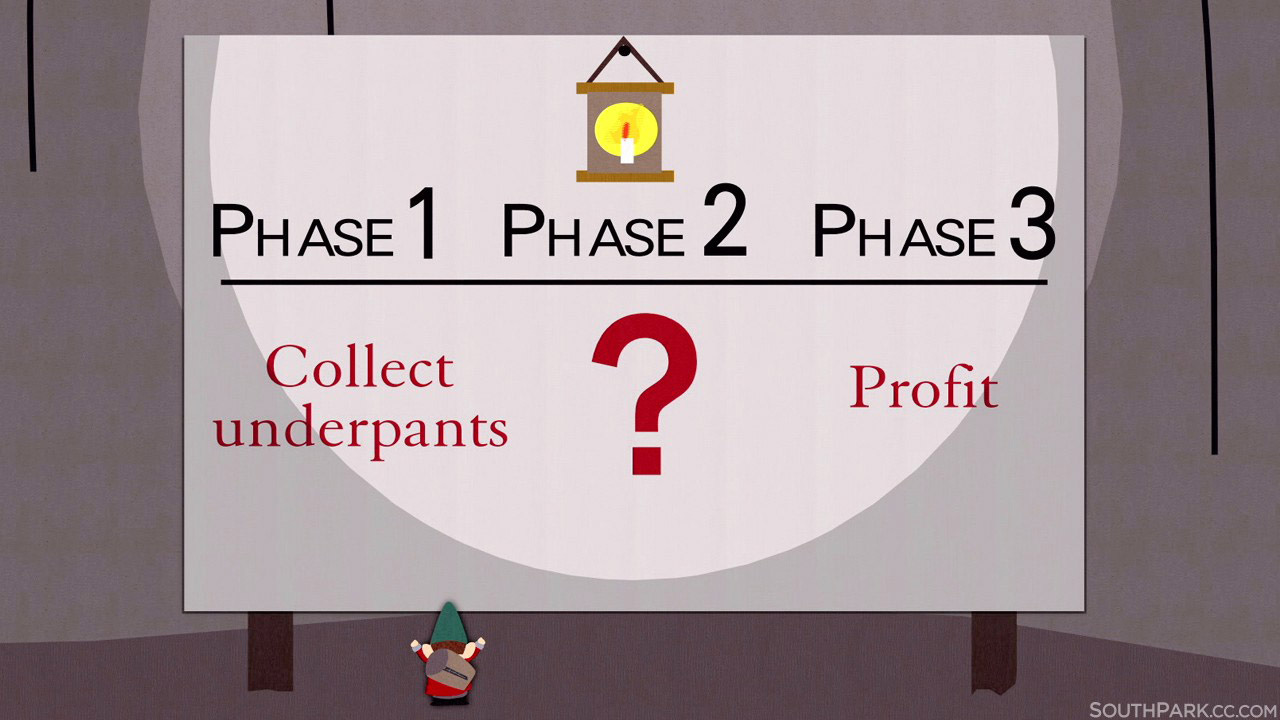Keeping Up to Date With News and Trends When Working in DevRel
Anyone working in developer relations needs to be constantly learning about new technologies, trends, and the evolution of their ecosystem. Here is my approach!
A recurring question I heard in my summer DevRel mentoring sessions was, “How do you keep up to date with all of the ecosystem and tech news so effectively?” Upon further enquiring about the question, this typically boiled down to people wanting to learn how I managed to fit continued learning into a busy schedule.
The life of a DevRel can seem never-ending; there’s always one more demo to create, one more blog to write, and one more talk to present. But keeping current on the latest developments in your ecosystem and the tech world is also essential. Doing so allows you to create grounded and relevant content, identify synergies between your products and emerging tech, and ride the wave of emerging trends to pick up more views and media coverage (generative AI and LLMs, anyone?).

So, how do I juggle all of this? Prioritization and discipline are key. In this post, I will explain the systems I’ve created to stay current with the latest tech news, industry trends, and competitor developments.
Define your learning goals (from the news)
As with most things in the world of work, defining your goals upfront will help with prioritization and a sense of accomplishment. Trying to keep current on everything is the surest way to scatter your attention.
One of my favourite quotes related to this is from Alice’s Adventures in Wonderland:
In another post, I’ll discuss my general approach to learning fundamental skills and knowledge acquisition. Here, I’ll focus only on keeping updated with news and current events. Defining goals within this context generally maps to picking a handful of technologies and topics you want to follow and keep up to date with.
I consider myself “successfully” following a topic when I can (on-demand) summarize the top three most important or developing pieces of news in this domain, I have an opinion on most new things in this space, and I have a good feel as to what related subtopics are getting hotter or colder.
Be sure that the scope of your goals (and the number of technologies) is appropriate for your career stage. I’ve mentored people bewildered by how quickly senior folks like myself can pick up new technologies or keep abreast of new developments in a domain. This isn’t magic and doesn’t require burning the midnight oil. However, it requires patience, as this ability is primarily due to well-developed mental models and pattern matching.
Anyone can build these mental models, but it takes time and focus to develop the relevant experience. For example, I have almost 20 years of professional software development/architect experience and went super deep into Java, JavaScript, MySQL, MongoDB, Kubernetes, and AWS tech before they were “cool”. These tech choices (through a bit of luck and skill) provided a fantastic grounding for modern cloud native development. I’ve also had access to amazing mentors and worked at many startups, where I had to learn about technologies, architectures, system thinking, process development, etc., on the fly.
If you are junior in your career, I recommend picking out only a few domains to keep up to date with. Perhaps start with one related to your job (e.g. API management, Kubernetes, Node.js, etc.) and one related to your personal learning goals (e.g. LLMs, Linux, Data Science, etc.).
If you are a senior individual contributor, you can probably manage to keep an eye on more domains. For example, when I worked as Head of DevRel at Ambassador Labs, I kept an eye on the following topics:
API gateways & API management
Service mesh
Kubernetes development/architecture
Platform Engineering/DevOps
The general K8s ecosystem
The cloud native (and in particular, the CNCF) ecosystem
Cloud/web Java
It’s worth noting that there is a fair bit of overlap between some of these domains, which made following all of this more manageable than it may first appear.
Understand your ecosystem
With your learning goals in place, you must now work to understand the related ecosystems of your chosen technologies and topics. I generally look at this from two perspectives. First, how is the associated community segmented, and second, where is the most information shared (or where do the best discussions occur)?
As far as I know, all technology communities are segmented to some degree, and this is often fractal. For example, in the “enterprise programming platform” space, there is Java vs .NET. If we dive into Java, this is segmented into standard app development (née J2SE) and web/cloud-based development (née J2EE). Web/cloud-based Java is further segmented into Spring vs Jakarta EE, etc. And the list goes on.
If you don’t know the domain or have access to mentors that do, you must learn this kind of information from observation and pattern matching over time.
Understanding your domain segments allows you to prioritize news and look for knowledge arbitrage opportunities between the communities (e.g. sharing information/demos across them).
Most technology communities also have their preferred communication locations and mechanisms. For example, in my early days of professional coding, the Microsoft Developer site was always the go-to place for .NET news. However, the Sun/Oracle site wasn’t a first choice for many Java developers. Nowadays, a lot of the interesting chatter related to Kubernetes occurs in the K8s Slack and the GitHub issues of related projects. DevOps and technology leadership are well covered in newsletters and at conferences. Most of my cloud news comes via InfoQ. And API gateway content is scattered across all of the vendors.
Figuring out the preferred location and style of communication for your domain helps you prioritise what to read and where to engage in discussions for maximum impact and visibility.
Example locations that I regularly learn from:
Socials
Twitter (I’ve curated a list for breaking news and opinions)
LinkedIn
Mastodon/BlueSky/Threads/{Next social hotness}
Community
Reddit (DevOps, Kubernetes, Microservices)
HackerNews (I don’t check this often, but some swear by it)
Slacks (e.g. CNCF Slack, DevRel Collective, DevRelX)
Newsletters (I subscribe to
too manya lot; some examples)Ed Sim’s What’s Hot in Enterprise (and check my other Substack recommendations!)
Feedly RSS (check out the image below)
Vendor sites
Thought leaders
Interesting blogs
Key news sites
TechCrunch (I have a paid subscription)
I’ll also mention that I have a paid subscription to several mainstream media sites, such as the Financial Times, New York Times, and The Economist. This is mainly for personal interest, but they also keep me informed of what’s happening in the world around me that could impact the tech sector (e.g., mainstream AI adoption, the end of zero interest rates policy, geopolitical issues, etc.)
I regularly share interesting articles and links via Twitter and LinkedIn, which has a positive feedback effect. People often comment on my posts and provide more information or tag/DM me with interesting things (but please don’t be that person tagging me in everything!)
Create a learning system.
So, now you know what topics you will aim to keep updated on and where the best information can be found. Now, all you need to do is regularly consume the content! Simples, right? Not so much… For this, you will need a learning system.
I generally create and follow systems with monthly, weekly, and daily cadences. This helps me stay disciplined. For example, here is how I aim to consume content.
Monthly
Parse my RSS feeds and bookmark interesting content
Review conference and talk recording sites, e.g. GOTO YouTube
Spend ~1 hour making sure everything is organized/tidied
Weekly
Review email newsletters
Check-in on high-value community sites/Slacks
Spend ~1 hour reading bookmarks from monthly RSS parse
Daily
Check socials
Visit core news sites
Spend ~15 minutes reading browser tabs and bookmarks
I use David Allen’s Getting Things Done (GTD) method to manage my tasks and time, and I operate this via my email inbox. I won’t go into detail about GTD here, and I can dive more into how I use this in another post if people are interested.
I attempt to block out time on my calendar to accomplish the news reading tasks listed above and include a reminder of what I should be doing. I’ve included an example below from one of my monthly calendar blocks:
Follow your system (Easier said than done!)
Following any system requires discipline. Once you establish a habit, the activity becomes more manageable, but in the early days, you’ve got to work hard at the routine. Checking the news even when you don't feel like it will hopefully provide some quick wins or a sense of accomplishment.
Of course, don’t beat yourself up if you miss a day, week, or even a month. During times of increased pressure, such as finalizing that important deliverable or preparing for a conference, things are bound to slip — and don’t let your mental health be one of those things! I’ve had to declare bankruptcy on my email newsletter folder and delete everything several times (especially around KubeCons!). I find that I can easily miss a week or two of socials and catch back up quite quickly.
Profit!
Let’s wrap things up. Following the above guidance, you can establish a regular learning habit and begin collecting all the knowledge — and ultimately profit! Let me share a few of my wins if you’re looking for more motivation as to why you should keep updated with news.
I managed to jump on and ride the microservices and platform engineering hype trains as they were (metaphorically) leaving the station.
In 2013, I kept bumping into LXC and this new-fangled “Docker” technology. In combination with some of the consulting work I was doing at the time, I mashed together Java demo apps with what I had learned about this technology. This led to speaking opportunities at DockerCon, being offered to write a report for O’Reilly (which ultimately turned into a full book), and many other things.
One of my most popular tweets ever is my commentary on the emerging topic of “platform engineering” in early 2022. In this thread, you’ll notice that I mostly linked to a bunch of the news I had recently read. Being seen as an innovator and/or expert in this topic allowed me and my team to get involved with the conversation, speak at conferences, publish “earned” media articles and more.
Want to know more about DevRel?
I hope this post has helped to shed some light on how I keep updated with the latest tech news and trends.
Please comment below and let me know if you want more content on learning in the role of developer relations.
And don’t forget to subscribe! I’m aiming to share a post every two weeks or so.








Hi Daniel,
This was a really nice read. I liked how you structured all the phases. One thing I have learnt particularly well through Cal Newport's "deep stack", especially on systems, is that it has to start with discipline. Building a calendar system can be awesome until you realize sticking to it even if you miss a day or a week is a whole world of effort.
Thanks again for the refresher 🙏🏽.